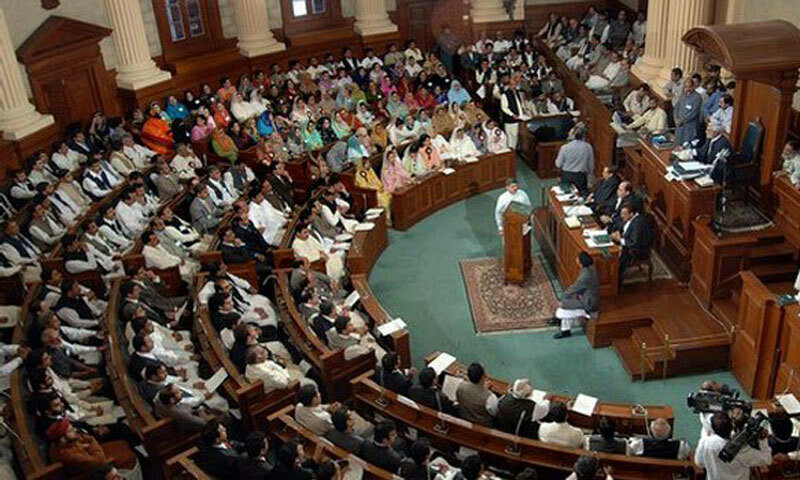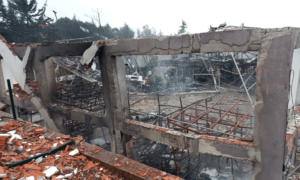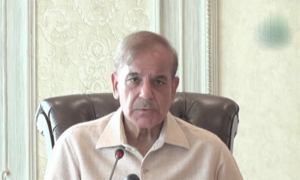LAHORE: The Punjab Assembly has expressed its annoyance over the non-constitution of public safety and complaints commissions at the provincial and district levels aimed at checking police’s use of “absolute power” as mandated by the Police Order 2002 and issued a standing order to constitute the commissions within a fortnight.
Giving a ruling during the Punjab Assembly session on Thursday, Speaker Malik Muhammad Ahmad Khan stated the assembly must regard the establishment of the Provincial Public Safety and Complaints Commission as well as the District Public Safety and Complaints Commission “as the command of the law that must be honoured in its entirety.” “The ruling of this Chair would stand as a standing order of the House,” he asserted.
Referring the matter simultaneously to the Punjab Assembly’s Law Reforms Committee and the Committee on Privileges, the Speaker ruled that the commissions be constituted within a fortnight.
The speaker had taken up a point of order raised by MPA Ahmer Rasheed Bhatti regarding the non-constitution of the commissions on Oct 29, wherein he argued that the absence of the commissions violated statutory provisions and prevented the assembly members from performing their rightful oversight duties over police conduct across the province.
Speaker says police accountability ignored for two decades, creation of the commission a binding duty
The speaker, in his ruling, said the point raised had emphasised the establishment of the required commissions was essential for balancing police autonomy with accountability to the public as intended by the law.
Since the point of order significantly pertained to MPA’s oversight rights — a statutory function outside the assembly business — the Speaker converted the point of order into a Question of Privilege and referred the matter simultaneously to the Law Reforms Committee and the Committee on Privileges.
“Mandatory nature of Police Order 2002 for the establishment of Public Safety and Complaints Commission at both provincial and district levels, the law uses the term Shall’ and the disregard to this Shall’ is over the period of two decades,” Speaker Khan observed.
He ruled that the creation of this commission was a binding duty and added the legislative language was unambiguous, imposing a statutory obligation with no room for discretion at all. “So it is must and mandatory to be formed,” Mr Khan asserted.
The speaker stated the Police Order 2002 was introduced to reform and modernise Pakistan’s policing system by moving away from the colonial-era Police Act of 1861 that placed the police under light, tight bureaucratic and political control. The intent behind the Police Order was to grant operational independence to the police in implementing the Act partially and serve the public effectively. However, he said, this independence was meant to be accompanied by a strong mechanism for accountability to the people’s representatives, ensuring the police autonomy would not lead to unchecked power. He said the law envisioned the provincial and district public safety and complaints commissions as essential oversight bodies designed to balance the police’s autonomy with accountability to the public. In the parliamentary scheme of things, Mr Khan said the office of the home secretary was actually necessary for the responsibility which the constitution envisaged as ministerial responsibility.
The speaker asserted that getting autonomy did not mean unbridled and unchecked power and added that there had to be a mechanism of oversight that was mandatory and expressly provided in the law. “The structure was intended to prevent such scenarios, where police abuse power, operate without meaningful oversight and lead to abuse of power. Without these commissions, police independence risks becoming absolute, echoing the principle that power corrupts and absolute power corrupts absolutely,” the Speaker observed.
Mr Khan in his ruling affirmed that the Police Order assigned several critical responsibilities to the provincial and district public safety and complaints commissions to ensure adherence to the rule of law and public service standards, upholding of public rights and police accountability.
On the instructions of the Speaker, the Punjab Assembly secretariat has notified the meeting of a 21-member Committee on Law and Reforms and Delegated Legislation at the assembly’s committee room on Nov 19 (Tuesday). The committee meeting will be convened by Speaker Khan himself. The home secretary and the representative of the police department would also attend the meeting.
Published in Dawn, November 17th, 2024







